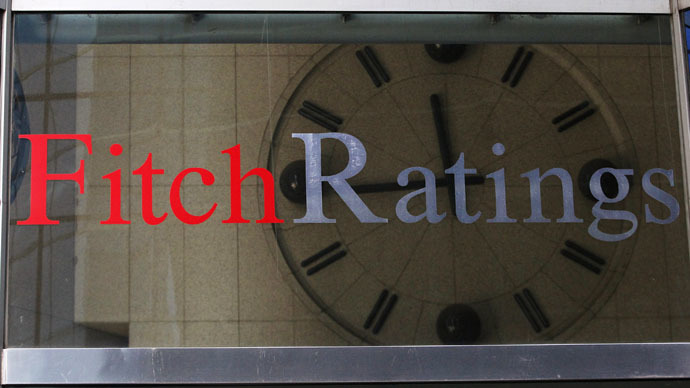Fitch downgrades Greece’s rating to 'CCC'

International ratings agency Fitch has downgraded Greece’s sovereign rating from B to CCC ahead of the agency's next scheduled review, amid worries that the country is defaulting on its sovereign debt.
Fitch also downgraded Greece's short-term foreign currency issuer
default rating (IDR) from B to C, the agency said in a press release on Friday. The
ratings agency revised the country's ceiling as well, lowering it
from BB to B-.
The downgrades came earlier than the scheduled review on Greece
which was scheduled for May 15. The agency explained that
“developments in Greece warrant such a deviation from the
calendar.”
Fitch cited several key ratings drivers, stating that a "lack
of market access, uncertain prospects of timely disbursement from
official institutions and tight liquidity conditions in the
domestic banking sector have put extreme pressure on Greek
government funding."
“We expect that the government will survive the current
liquidity squeeze without running arrears on debt obligations,
but the heightened risks have led us to downgrade the ratings.
The damage to investor, consumer, and depositor confidence has
almost certainly derailed Greece's incipient economic
recovery,” the agency said.
READ MORE: Germany wants Greece in eurozone, but demands more reforms
Fitch also revised the country’s growth forecast to 0.5 percent –
down from 1.5 percent in January 2015 and 2.5 percent in December
2014. It added that the liquidity conditions faced by firms have
worsened substantially due to “increased government arrears
to suppliers and bank funding strains.”
Greece received two bailouts from the EU in 2010 and 2014,
totaling €240 billion (US$261 billion). Following austerity
measures, Greece saw its economy lose a quarter of its value.
In February, Athens and eurozone finance ministers struck a deal
to extend the Greek bailout by another four months, with the
newly-formed Greek government agreeing to present a list of
structural reforms and to fulfill its obligations to repay the
existing debt.
In March, Greece’s Prime Minister Alexis Tsipras and European
leaders held talks on the EU-IMF bailout. Following the meeting,
the European Commission made $2 billion in unused funds available
to Greece to help the country avert bankruptcy.












